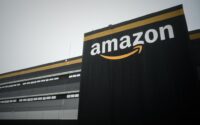Bob Iger admits Disney was ‘too aggressive’ with theme park price hikes
Disney CEO Bob Iger admitted the Mouse House went too far with theme park price hikes that irked its customers last year.
One of the first steps Iger took when he returned as Disney’s CEO last November was to roll back the price increases implemented under his predecessor, Bob Chapek.
“I always believed that Disney was a brand that needs to be accessible,” Iger said during an appearance at a Morgan Stanley media conference on Thursday. “And I think that in our zeal to grow profits, we may have been a little bit too aggressive about some of our pricing.”
“I think there is a way to continue to grow our business but be smarter about how we price so that we maintain that brand value of accessibility,” Iger added.
In January, Disney reinstated many price-friendly perks the company had previously scrapped, including complimentary self-parking at resort hotels and free photo downloads for its theme park rides.
The entertainment giant also “significantly” boosted the number of days that tickets to Disneyland sell for their lowest price of $104.

Iger said that the company’s price rollbacks have “resonated extremely well with consumers.”
The Disney boss also said the company has taken steps to “improve the guest experience by reducing crowding” at parks.
“It’s tempting to let more and more people in, but if the guest satisfaction levels are going down because of crowding then that doesn’t work,” Iger said. We have to figure out how we reduce crowding but maintain our profitability. And we did that well.”

A series of price increases had sparked outrage among Disney parkgoers who grumbled about sticker shock as well as long lines and subpar service they encountered on site.
Last November, the Wall Street Journal reported that Iger had been “alarmed” by price hikes that Chapek had ordered during his time as CEO.
“He’s killing the soul of the company,” Iger reportedly told confidants about the price hikes.
Disney’s theme parks remain a major driver of its overall business. In fiscal 2022, the segment generated $28.7 billion in revenue and $7.9 billion in profit, beating its pre-pandemic performance.


